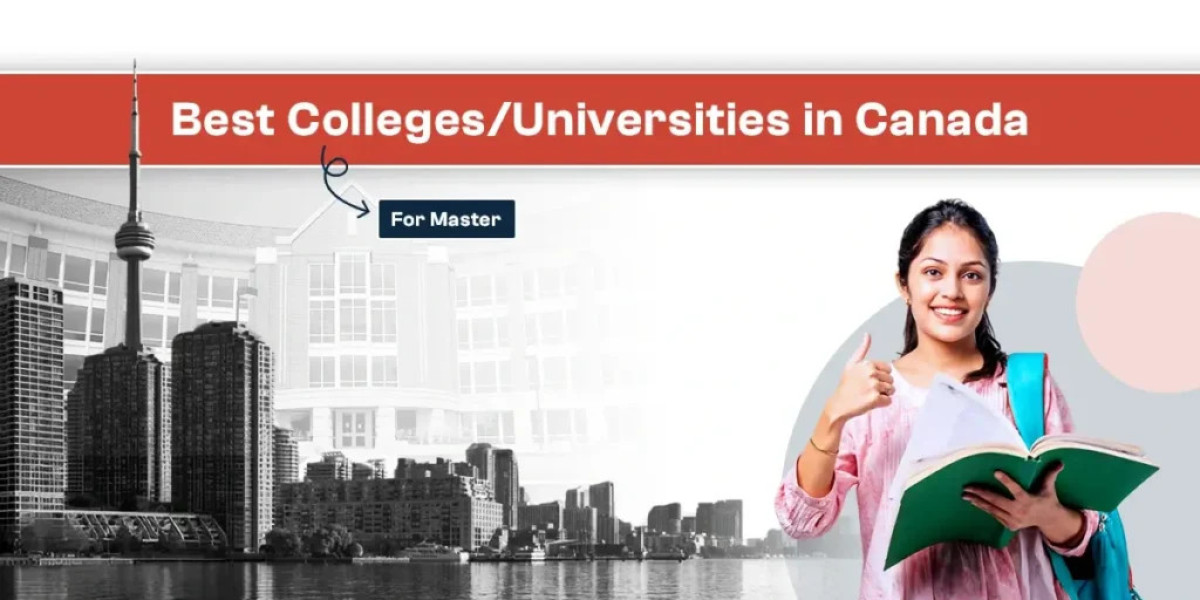Pursuing a master’s in Canada is a dream for many students worldwide, thanks to the country’s reputation for high-quality education, research opportunities, and multicultural environment. However, the cost of studying in Canada, especially for international students, can be a barrier. Scholarships are one way to alleviate these financial challenges, making advanced studies in Canada more accessible. This guide explores scholarship for master’s students in Canada, including major scholarships, eligibility criteria, and tips on securing funding.
Why Study for a Master’s Degree in Canada?
Canada is known for its world-renowned universities and research facilities, offering degrees that are recognized globally. Universities in Canada for master’s programs rank high in quality and provide robust academic offerings across fields, from engineering and computer science to arts and healthcare. Moreover, Canada’s student-friendly policies, such as post-graduation work permits and pathways to permanent residency, make it an attractive destination for international students.
The only major hurdle can be funding, especially for international students. Scholarships can play a significant role in reducing tuition fees and other expenses, helping students focus on academics without the financial strain.
Types of Scholarships for Master’s Students in Canada
1. Government-Funded Scholarships
A. Vanier Canada Graduate Scholarships (Vanier CGS)
Description: Designed to attract top graduate students from around the world, the Vanier CGS is among Canada’s most prestigious scholarships. Although primarily aimed at PhD students, many universities extend their funding offers to master’s students pursuing research-based programs.
Eligibility: International and Canadian students with strong academic backgrounds and research potential.
Amount: Up to CAD 50,000 per year for three years (although intended for PhD students, certain programs allow it to be used for master’s level students transitioning into PhD studies).
B. Canada Graduate Scholarships – Master’s Program (CGS-M)
Description: Administered by Canada’s three federal research agencies (CIHR, NSERC, and SSHRC), this program supports graduate students in research-focused disciplines.
Eligibility: Canadian citizens, permanent residents, and some eligible international students with high academic achievement in research programs.
Amount: CAD 17,500 for one year.
C. Ontario Graduate Scholarship (OGS)
Description: Available for students pursuing master’s or doctoral studies in Ontario, this merit-based scholarship is supported by the Ontario government.
Eligibility: Open to international students studying in Ontario universities, with a strong academic record.
Amount: CAD 5,000 per session, up to CAD 15,000 per year.
2. University-Specific Scholarships
Universities in Canada offer scholarships specifically for international and domestic students at the master’s level. Here are a few examples:
A. University of Toronto’s Ontario Graduate Scholarship (OGS)
Description: U of T provides OGS awards to graduate students with academic excellence.
Eligibility: Available to both international and Canadian students.
Amount: Up to CAD 15,000 for a year.
B. University of British Columbia’s Graduate Global Leadership Fellowship
Description: For international students from developing countries who demonstrate leadership in advancing social and environmental change.
Eligibility: Limited to international students from developing countries pursuing research-based master’s degrees.
Amount: CAD 18,200 annually plus tuition.
C. University of Alberta’s Graduate Entrance Scholarship
Description: The University of Alberta offers several entrance scholarships for students pursuing a master’s or PhD degree.
Eligibility: Academic excellence and research potential are key factors.
Amount: Ranges from CAD 11,000 to CAD 17,500.
3. Private and Non-Profit Organization Scholarships
A. Trudeau Foundation Scholarships
Description: Although primarily for doctoral students, the Trudeau Foundation provides scholarships that can sometimes be extended to master’s students involved in social sciences and humanities.
Eligibility: Academic excellence and leadership potential are required.
Amount: Varies based on academic program and research focus.
B. Canadian Bureau for International Education (CBIE) Scholarships
Description: CBIE offers a range of awards aimed at promoting global student mobility, many of which are open to international students.
Eligibility: Varies; some scholarships are open to specific nationalities or fields of study.
Amount: Typically ranges from CAD 5,000 to CAD 20,000.
4. Provincial Scholarships
Some provinces, like Quebec and Ontario, offer scholarships to attract international students to their universities.
A. Merit Scholarship Program for Foreign Students (PBEEE) in Quebec
Description: Aimed at attracting international students to study in Quebec.
Eligibility: Open to international students with a high academic standing.
Amount: Up to CAD 35,000 annually.
B. Alberta Innovates Graduate Student Scholarships
Description: Available to students in research fields that align with Alberta’s areas of focus, such as energy, environment, and health.
Eligibility: Canadian and international students with a research focus in line with Alberta’s key priorities.
Amount: Varies depending on the program and university.
How to Apply for Scholarships in Canada
Securing a scholarship requires careful preparation and attention to detail. Here are essential steps to maximize your chances:
Research Early: Many scholarships have early deadlines. Start your research well before applying to ensure you don’t miss any opportunity.
Prepare Strong Application Documents: Write a compelling statement of purpose, obtain recommendation letters, and, if required, submit a research proposal.
Showcase Your Research and Leadership Potential: Many scholarships are merit-based and look for students with a strong academic background and research potential.
Consult with University Advisors: Canadian universities have dedicated advisors for graduate students. They can provide guidance on scholarships and even recommend lesser-known funding options.
Apply for Multiple Scholarships: Don’t limit yourself to one scholarship. Apply for as many as you’re eligible to increase your chances.
Conclusion
In conclusion, scholarships for master’s students in Canada are essential for making quality education more accessible. With various funding options, including government scholarships, university awards, and private foundations, students can alleviate financial burdens and focus on their studies. Navigating the application process can be complex, so working with a Canada education consultant can provide tailored guidance and insights into additional financial aid. Pursuing a master’s in Canada not only offers exceptional academic opportunities but also pathways to global networks and potential residency, making it a valuable investment in your future.
FAQs
1. What are the types of scholarships available for master's students in Canada?
There are two main types of scholarships: need-based and merit-based. Need-based scholarships are awarded to students with financial need, while merit-based scholarships are given to students with outstanding academic records.
2. Where can I find information about scholarships for international students in Canada?
You can find information about scholarships on the websites of Canadian universities, government organizations, and private foundations. Additionally, you can use online scholarship databases to search for specific opportunities.
3. What are the eligibility criteria for scholarships?
Eligibility criteria vary depending on the specific scholarship. However, common requirements include academic excellence, strong letters of recommendation, a well-written statement of purpose, and financial need (for need-based scholarships).
4. How can I increase my chances of getting a scholarship?
To increase your chances of getting a scholarship, focus on maintaining a strong academic record, participating in extracurricular activities, and gaining relevant work experience. Additionally, write strong personal statements and letters of recommendation.
5. When should I start applying for scholarships?
It's recommended to start researching and applying for scholarships as early as possible. Many scholarships have specific deadlines, so it's important to plan ahead and submit your applications on time.








